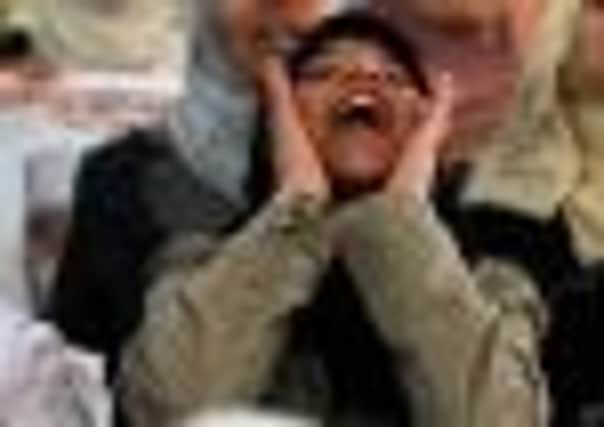Algerians sceptical that elections will change their lives


In THE working-class Algiers suburb of Harrache, activists sporting the green baseball caps of the Islamist “Green” alliance yesterday handed out election leaflets outside their party headquarters, urging people to vote.
A middle-aged man pushed past the young activists. “The last people I voted for were thrown into jail,” he said in disgust. “I’m done with that.”
Advertisement
Hide AdAdvertisement
Hide AdAlgeria is gearing up for parliamentary elections tomorrow that promise to be the freest ever. But the legacy of the 1991 elections nearly won by Islamists before a military coup ended the voting hangs heavy. Islamists will again square off against pro-government parties. But after decades of repression and rigged contests, turnout may not surpass the anaemic 35 per cent seen in the last elections in 2007.
The Arab Spring pro-democracy uprisings that engulfed the region have largely bypassed Algeria, Africa’s largest country and an Opec member rich from its natural gas fields. But while the nation’s wealth has helped stave off unrest, faith in the political process appears broken.
“All the parties are the same, filled with scammers and the corrupt,” said Hamid Bouchna, an unemployed university graduate with a degree in electrical engineering.
President Abdelaziz Bouteflika is promising reforms and free elections with international observers to placate a restive population.
But sociologist Nasser Djabi, noting that the legislature is largely powerless in the face of an autocratic president, said: “Elections in Algeria do not have a good reputation. People say I vote, but nothing changes – it’s the same people we always see, the same parties.”
On Thursday, 21.6 million Algerians will vote for 44 parties, half of which were made legal only this year, for a parliament Mr Bouteflika promises will have a say in rewriting the constitution. Yet the elections are expected to produce a fractured parliament divided between government parties, the Islamist alliance and smaller groups.
During the campaign, most Algerians showed more enthusiasm for the final matches of the country’s football league season.
As the campaign ground on, newspapers were filled with news of sporadic al-Qaeda attacks and small protests around the country over lack of jobs and housing. Unrest erupted then subsided after a man fatally set himself on fire in April in the eastern city of Jijel after police cleared away his illegal cigarette stall – an act that echoed the self-immolation of a vendor in Tunisia that set off the Arab Spring.
Advertisement
Hide AdAdvertisement
Hide AdAlgerian authorities are hoping to present an image of reform and change to the world, allowing in 500 foreign observers.
During the campaign, state media for the first time gave something resembling equal time to opposition parties.
In their campaign speeches, the leaders of the two pro-government parties tried to dismiss the Arab Spring as something that sowed turmoil.
Prime minister Ahmed Ouyahia said at a party rally on Saturday: “The Arab Spring for me is a disaster, we don’t need lessons from outside, our spring is Algerian, our revolution of 1 November, 1954.”
The last group to truly mobilise the country towards change were the Islamists of the Islamic Salvation Front. They nearly won the 1991 elections and have since been banned from politics.
Surfing on a region-wide wave of Islamist victories, Algeria’s new generation of Islamist parties is hoping to recapture some of that popularity – but the message this time is more economic than religious.
Amar Ghoul, the lead candidate in Algiers for the Islamist Green Alliance, spent much of the campaign courting poor people in districts such as Harrache.
“These elections are not just about the parliament,” he said after meeting an elderly woman whose house was falling down around her.
“It is for a new government, representative and effective.”